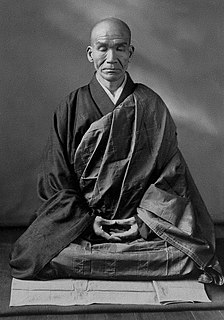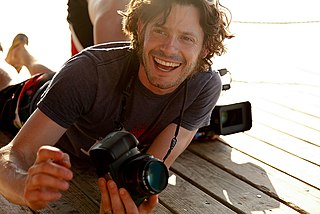A Quote by Edward Albee
I have learned that neither kindness or cruelty by themselves, or independent of each other, create any effect beyond themselves.
Quote Topics
Related Quotes
Then it was as if I suddenly saw the secret beauty of their hearts, the depths of their hearts where neither sin nor desire nor self-knowledge can reach, the core of their reality, the person that each one is in God's eyes. If only they could see themselves as they really are. If only we could see each other that way all the time, there would be no more war, no more hatred, no more cruelty, no more greed . . . I suppose the big problem would be that we would fall down and worship each other.
Every man feels that perception gives him an invincible belief of the existence of that which he perceives; and that this belief is not the effect of reasoning, but the immediate consequence of perception. When philosophers have wearied themselves and their readers with their speculations upon this subject, they can neither strengthen this belief, nor weaken it; nor can they shew how it is produced. It puts the philosopher and the peasant upon a level; and neither of them can give any other reason for believing his senses, than that he finds it impossible for him to do otherwise.
They that are intoxicated by self-conceit have interposed themselves between it and the Divine and infallible Physician. Witness how they have entangled all men, themselves included, in the mesh of their devices. They can neither discover the cause of the disease, nor have they any knowledge of the remedy.
The last chapter in any successful genocide is the one in which the oppressor can remove their hands and say, 'My God, what are these people doing to themselves? They're killing each other. They're killing themselves while we watch them die.' This is how we came to own these United States. This is the legacy of manifest destiny.
Love, experienced thus, is a constant challenge; it is not a resting place, but a moving, growing, working together; even whether there is harmony or conflict; joy or sadness, is secondary to the fundamental fact that two people experience themselves from the essence of their existence, that they are only one with each other by being one with themselves, rather than by fleeing from themselves.
From their struggles to establish dominance over each other, siblings become tougher and more resilient. From their endless rough-housing with each other, they develop speed and agility. From their verbal sparring they learn the difference between being clever and being hurtful. From the normal irritations of living together, they learn how to assert themselves, defend themselves, compromise. And sometimes, from their envy of each other's special abilities they become inspired to work harder, persist and achieve.
... the friendship of worthless people has a bad effect (because they take part, unstable as they are, in worthless pursuits, and actually become bad through each other's influence). But the friendship of the good is good, and increases in goodness because of their association. They seem even to become better men by exercising their friendship and improving each other; for the traits that they admire in each other get transferred to themselves.





































